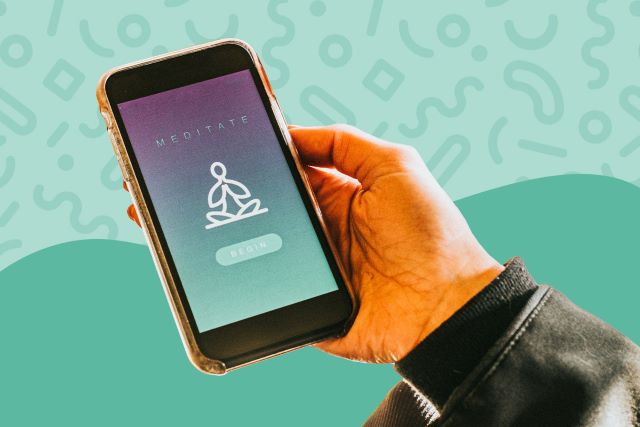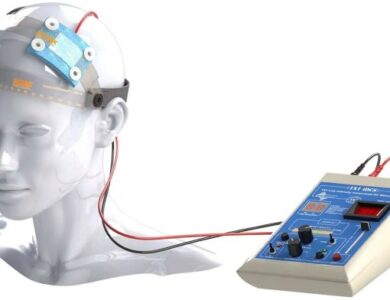Embracing Emotional Well-being: A Guide to Mental Health Apps

In the whirlwind of our fast-paced lives, the significance of mental health cannot be overstated. Picture this: a delicate equilibrium where a sound mind and a sound body are entwined, each influencing the other’s well-being. The consequences of neglecting mental health are profound, impacting not only the individual but rippling through the fabric of families and communities.
Meet Jake, an ordinary person juggling the demands of work, family, and personal aspirations. In the relentless pursuit of success, he inadvertently sidelined his mental well-being. As stress mounted, the toll on Jake’s mental health became evident, affecting his decision-making, relationships, and overall quality of life. Unbeknownst to him, his family, too, bore the brunt of this silent struggle, navigating the challenges imposed by the invisible weight on Jake’s shoulders.
This tale is not unique. The reality is, without a sturdy foundation of good mental health, life’s intricate dance becomes a perilous tightrope walk. Join us as we unravel the profound importance of cultivating a resilient mind, exploring the consequences when this delicate balance falters, and discovering the transformative power of prioritizing mental well-being.
Unraveling the World of Mental Health Apps
Welcome to the world where technology meets tranquility — the world of Mental Health Apps. But, what exactly are these digital allies, and why have they become the linchpin in our pursuit of well-being?
In a society hurtling at breakneck speed, where stress has become a near-constant companion, Mental Health Apps emerge as digital sanctuaries, offering solace and support at our fingertips. Picture them as personalized guardians, whispering serenity amidst the chaos, fostering a sanctuary for self-awareness and emotional well-being.
But, why the sudden surge in their relevance? The answer lies in the quiet acknowledgment that our mental well-being often takes a backseat amid the cacophony of our daily lives. These apps have stepped into the spotlight precisely because they cater to a fundamental need—our collective cry for mental health support.
As we embark on this exploration, let’s peel back the layers to understand why Mental Health Apps matter more than ever. Beyond the buzz, delve into the stark statistics and studies that spotlight an alarming rise in the need for mental health resources. These digital companions aren’t just trendy; they are a lifeline in a world where the demand for mental health support is echoing louder than ever before. Join us as we unravel the stories behind the numbers, discovering why Mental Health Apps are not merely conveniences but necessities in our quest for a balanced and harmonious life.
Top Apps for Meditation and Mindfulness
Calm: Calm is a popular meditation app that offers a variety of guided meditations, breathing exercises, and sleep stories. The app has a user-friendly interface and is easy to navigate. Calm is also available in multiple languages.
Features:
- Over 100 guided meditations
- Breathing exercises
- Sleep stories
- Soothing music and soundscapes
- Mood tracker
- Personalized meditation plans
- How it aids in meditation:
Calm’s guided meditations can help you to learn how to meditate and develop a regular meditation practice. The app’s breathing exercises can help you to relax and focus on the present moment. Calm’s sleep stories can help you to fall asleep and improve your sleep quality.
Headspace: Headspace is another popular meditation app that offers a variety of guided meditations, mindfulness exercises, and sleep tools. The app has a gamified approach to meditation, which can help to make it more engaging and fun. Headspace is also available in multiple languages.
Features:
- Over 1,000 guided meditations
- Mindfulness exercises
- Sleep tools, including sleepcasts and sleep sounds
- Focus exercises
- Movement exercises
- How it aids in meditation:
Headspace’s gamified approach to meditation can help to make it more engaging and fun. The app’s variety of guided meditations can help you to find the right ones for you. Headspace’s sleep tools can help you to fall asleep and improve your sleep quality.
Ten Percent Happier: Ten Percent Happier is a meditation app that combines mindfulness meditation with positive psychology. The app offers a variety of guided meditations, mindfulness exercises, and talks from experts in positive psychology. Ten Percent Happier is also available in multiple languages.
- Features:
- Over 500 guided meditations
- Mindfulness exercises
- Talks from experts in positive psychology
- Personalized meditation plans
- Mood tracker
How it aids in meditation:
Ten Percent Happier’s combined approach of mindfulness meditation and positive psychology can be helpful for people who are new to meditation or who want to deepen their practice. The app’s variety of guided meditations can help you to find the right ones for you. Ten Percent Happier’s talks from experts in positive psychology can provide additional insights and motivation.
These are just a few of the many great meditation apps available. The best app for you will depend on your individual needs and preferences. It is important to try out a few different apps to find one that you like and that works for you.
Common Features across Meditation Apps
Let’s dive into the shared traits that make meditation apps a go-to for users seeking peace and mindfulness. Imagine it as a guided tour through the common features that users, like you, often find incredibly beneficial when navigating the diverse world of meditation applications. So, buckle up for an exploration into the features that consistently elevate the meditation app experience, making your journey to tranquility all the more accessible and enjoyable.
Apps for Mood Tracking and Journaling
Daylio is a simple yet effective mood tracking app that allows users to quickly and easily record their moods throughout the day. The app uses a variety of colorful emojis to represent different moods, and users can also add notes and tags to their entries. Daylio provides users with a variety of insights into their mood patterns, including their most common moods, the activities that tend to make them feel good or bad, and how their moods have changed over time.
Moodnotes is a mood tracking and journaling app that is grounded in the principles of cognitive-behavioral therapy (CBT). The app includes a variety of features to help users track their moods, identify negative thoughts, and develop more positive coping mechanisms. Moodnotes also has a built-in journal that allows users to reflect on their thoughts and feelings.
Reflectly is a mood tracking and journaling app that uses artificial intelligence (AI) to provide users with personalized insights into their emotional well-being. The app asks users a series of questions about their day, and then uses AI to analyze their responses and identify patterns. Reflectly also provides users with a variety of tips and resources for managing their stress, anxiety, and depression.
How these apps help in mood tracking and journaling:
Tracking moods and emotions: These apps allow users to track their moods throughout the day, which can help them to identify patterns in their behavior and understand what triggers their moods.
Maintaining a digital journal: These apps provide a space for users to record their thoughts and feelings, which can be helpful for self-reflection and personal growth.
Identifying patterns and managing emotional well-being: These apps provide users with insights into their mood patterns and emotional well-being, which can help them to develop healthier coping mechanisms for managing stress, anxiety, and depression.
Overall, these apps can be helpful for anyone who wants to track their moods, improve their emotional well-being, or simply learn more about themselves.
The Importance of Mood Tracking for Mental Health
In the hustle and bustle of modern life, it’s easy to lose touch with our inner selves and overlook the subtle fluctuations of our moods and emotions. However, tracking these fluctuations can be a powerful tool for understanding and managing our mental health.
According to Dr. John D. Teasdale, a professor of psychiatry at the University of Cambridge, “Mood tracking can help us to identify patterns in our emotions and behaviors, and to understand what triggers our moods to change. This information can be invaluable for developing coping mechanisms and managing stress, anxiety, and depression.”
Benefits of Mood Tracking
Mood tracking offers a range of benefits for mental health, including:
Increased self-awareness: By tracking our moods over time, we can gain a better understanding of our emotional patterns and triggers. This self-awareness can empower us to make informed choices about our daily activities and interactions.
Improved emotional regulation: Mood tracking can help us to identify and manage our emotions more effectively. By recognizing early signs of emotional distress, we can take proactive steps to avoid or mitigate negative emotions.
Enhanced mental well-being: Mood tracking can contribute to overall mental well-being by promoting self-reflection, emotional awareness, and effective coping strategies.
Role of Mood Tracking Apps
Technology has made mood tracking more accessible and convenient than ever before. Numerous mood tracking apps are available, providing a user-friendly platform to record, analyze, and understand our emotional fluctuations.
These apps offer various features, such as:
Mood journaling: A space to record our moods, thoughts, and experiences throughout the day.
Mood charting: Visual representations of our mood patterns over time, helping us identify trends and triggers.
Mood insights: Personalized feedback and analysis of our mood patterns, providing valuable insights into our emotional well-being.
Expert Perspectives
Mental health experts emphasize the significance of mood tracking in promoting emotional well-being:
By understanding their emotional patterns, individuals can develop strategies to manage their moods and reduce the impact of stress and anxiety.”
Dr. Holly Parker, a psychiatrist, adds: “Mood tracking can be particularly beneficial for individuals struggling with mental health conditions, such as depression and bipolar disorder. By monitoring their moods, individuals can work with their mental health professionals to identify potential triggers and adjust treatment plans accordingly.”
Mood tracking offers a valuable approach to enhancing self-awareness, improving emotional regulation, and promoting overall mental well-being. With the support of technology and the guidance of mental health professionals, individuals can effectively utilize mood tracking to gain control over their emotional landscape and cultivate a healthier, happier life.
Physical and Mental Health Integration Apps: Promoting Holistic Well-being
While physical activity is essential for maintaining a healthy body, its benefits extend far beyond physical fitness. Exercise has been shown to have a profound impact on mental well-being, reducing stress, anxiety, and depression while promoting relaxation, mood enhancement, and cognitive function.
Shine is a comprehensive app that integrates physical activity, mental well-being, and social connection, fostering a holistic approach to overall health. The app provides personalized fitness plans, guided meditations, and mindfulness exercises, catering to individual needs and preferences. Additionally, Shine offers a supportive community forum where users can connect with others, share experiences, and find motivation.
Features:
- Personalized fitness plans tailored to individual fitness levels and goals
- Guided meditations and mindfulness exercises to promote relaxation and stress reduction
- Interactive social community for motivation, support, and connection
Benefits:
Enhances physical fitness and endurance
Promotes mental well-being through stress reduction, anxiety relief, and mood enhancement
Fosters a sense of community and belonging
- Mindful Moves
Mindful Moves combines mindfulness practices with guided physical activity, creating a unique experience that nurtures both body and mind. The app’s library of mindful movement routines incorporates elements of tai chi, yoga, and Qi Gong, promoting flexibility, balance, and body awareness. Additionally, Mindful Moves offers guided meditations and breathing exercises to enhance relaxation and mental focus.
Features:
- Guided mindful movement routines that combine physical activity with mindfulness
- Guided meditations and breathing exercises to promote relaxation and focus
- Soothing music and soundscapes to enhance the mindful experience
Benefits:
- Improves physical fitness and flexibility
- Reduces stress, anxiety, and depression
- Enhances mental focus, concentration, and clarity
- Calm Habit
Calm Habit bridges the gap between physical and mental health by providing a personalized approach to habit building. The app utilizes a habit-stacking technique, linking new habits to existing routines, making it easier to incorporate healthy behaviors into daily life. Calm Habit also offers guided meditations and mindfulness exercises to support mental well-being during habit formation.
Features:
- Personalized habit-stacking technique for easy habit formation
- Guided meditations and mindfulness exercises to support mental well-being
- Habit-tracking tools to monitor progress and stay motivated
Benefits:
- Develops healthy physical and mental habits
- Reduces stress and anxiety associated with habit formation
- Enhances self-awareness and self-discipline
The Mind-Body Connection: A Symbiotic Relationship
The human body and mind are intricately interwoven, forming a symbiotic relationship where physical and mental health are inextricably linked. This interconnectedness highlights the profound impact that one’s physical well-being has on their mental state and vice versa.
Expert Perspectives
Dr. Herbert Benson, a cardiologist and mind-body medicine expert, states: “The mind and body are not separate entities; they are one integrated system. What affects one affects the other.”
Dr. Deepak Chopra, a physician and author on mind-body medicine, adds: “The mind is the master healer. When we focus our attention on healing, we activate the body’s innate healing mechanisms.”
Physical Health’s Impact on Mental Well-being
- Regular physical activity is a cornerstone of mental well-being, offering a multitude of benefits:
- Stress Reduction: Exercise releases endorphins, natural mood boosters that counteract stress hormones.
- Anxiety Relief: Physical activity provides a healthy outlet for pent-up energy and can reduce anxiety symptoms.
- Mood Enhancement: Engaging in physical activity can elevate mood and promote feelings of happiness and well-being.
- Cognitive Function: Exercise enhances blood flow to the brain, improving cognitive function, memory, and focus.
Mental Health’s Impact on Physical Well-being
Mental health plays a crucial role in maintaining physical well-being:
- Stress Management: Chronic stress can weaken the immune system, increasing susceptibility to illness.
- Anxiety and Depression: These conditions can lead to unhealthy behaviors, such as overeating or substance abuse, which can compromise physical health.
- Sleep Quality: Adequate sleep is essential for physical restoration and overall health. Mental health issues can disrupt sleep patterns, affecting physical well-being.
Leveraging the Mind-Body Connection
Shine: By combining physical activity with mental well-being practices, Shine addresses both aspects of an individual’s health simultaneously.
Mindful Moves: Integrating mindfulness with physical activity enhances the benefits of exercise by promoting mental focus and stress reduction.
Calm Habit: By supporting habit formation with mindfulness practices, Calm Habit fosters healthy physical and mental habits, promoting overall well-being.
Understanding the mind-body connection empowers individuals to take charge of their holistic health. By incorporating physical activity, mindfulness practices, and habit stacking techniques, we can cultivate a healthier, happier, and more fulfilling life.
Personalized Mental Health Plans: Empowering Individuals with Tailored Support
Mental health, like physical health, is a unique and personal journey. Each individual experiences emotions, thoughts, and behaviors differently, requiring a personalized approach to mental health support. Personalized mental health plans, increasingly available through technology, offer a promising avenue for individuals to receive tailored guidance and support aligned with their specific needs and circumstances.
- Lyra Health
Lyra Health is a comprehensive mental health platform that provides personalized care through a combination of technology and human expertise. The app utilizes an extensive assessment to gather insights into an individual’s mental health needs and preferences. Based on this assessment, Lyra Health matches individuals with licensed therapists specializing in their specific areas of concern.
Features:
- Comprehensive mental health assessment to gain a holistic understanding of individual needs
- Personalized matching with licensed therapists specializing in relevant areas of mental health
- Access to a variety of therapy approaches, including CBT, DBT, and EMDR
- Secure messaging platform for communication with therapists
Benefits:
- Tailored treatment plans that address individual needs and preferences
- Access to qualified therapists with specialized expertise
- Convenient and accessible therapy options, including video chat and messaging
- Comprehensive support system that integrates technology and human expertise
- Sanvello
Sanvello is a self-help app that provides personalized mental health support through a combination of cognitive-behavioral therapy (CBT) techniques and social support. The app utilizes a mood tracker to identify patterns in an individual’s moods and behaviors. Based on this data, Sanvello provides personalized recommendations for coping strategies, mindfulness exercises, and relaxation techniques.
Features:
- Personalized mood tracker to identify patterns and triggers
- Tailored recommendations for coping strategies, mindfulness exercises, and relaxation techniques
- Access to a supportive online community for peer support and encouragement
- Gamified elements to promote engagement and motivation
Benefits:
- Personalized support based on individual needs and mood patterns
- Access to effective CBT techniques for managing emotions and behaviors
- Supportive online community for connection and encouragement
- Engaging and gamified approach to maintaining motivation
- Moodpath
Moodpath is a mood tracking and journaling app that provides personalized insights and support based on an individual’s emotional patterns. The app utilizes a mood tracker and journaling tool to gather data on an individual’s moods, thoughts, and experiences. Based on this data, Moodpath provides personalized insights into mood triggers, emotional patterns, and coping strategies.
Features:
- Comprehensive mood tracker and journaling tool to capture emotional patterns
- Personalized insights into mood triggers, emotional patterns, and coping strategies
- Guided journaling prompts to encourage self-reflection and emotional processing
- Interactive charts and graphs to visualize mood patterns and progress
Benefits:
- Increased self-awareness through personalized insights into emotional patterns
- Improved emotional regulation through tailored coping strategies
- Enhanced self-reflection and personal growth through guided journaling prompts
- Visual representation of progress and mood patterns for motivation
Customization for Individual Needs
Tailoring mental health plans to individual preferences and circumstances is crucial for effective support. Personalized approaches consider factors such as:
- Individual’s unique mental health concerns and symptoms
- Personal preferences for therapy modalities and approaches
- Cultural background and beliefs
- Lifestyle factors and daily routines
- Accessibility and availability of resources
By considering these factors, personalized mental health plans can provide individuals with the most relevant, effective, and culturally appropriate support, empowering them to take charge of their mental well-being and achieve their goals.
Embrace the power of technology to nurture your mental health. These apps are tools crafted to empower you on your journey to well-being. Incorporate them into your routine and embark on a path of self-discovery and improved mental resilience.




